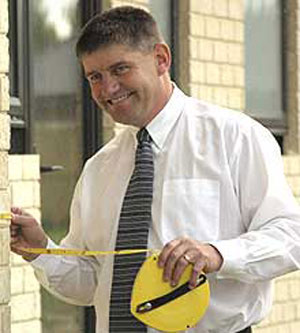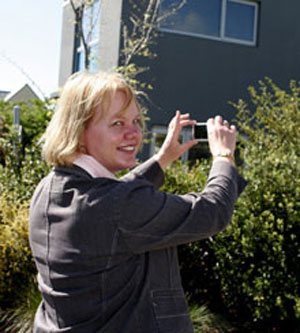Property Valuer
Tasks & duties

Property valuers may do some or all of the following:
-
advise on residential, commercial, rural and industrial real estate
-
inspect properties
-
note the size, area, design, age and condition of properties
-
note areas of properties that need improvement
-
check planning regulations to see if changes to properties are allowed
-
look over relevant legal documents
-
assess the potential rental income an existing or potential building may return
-
assess running costs (such as electricity bills or maintenance costs) of properties
-
examine current property prices
-
work out the value of properties by comparing them to the sale of similar properties
-
write reports
-
advise clients and make mortgage recommendations
-
advise on insurance value
-
give evidence in arbitrations and court hearings
Specialisations
Property valuers often specialise in an area of property valuation such as commercial, industrial, residential or rural valuing.
Although most rural valuers are generalists with a broad knowledge of the rural property market, there are opportunities to specialise further in areas such as dairy, forestry, viticulture and horticulture. This can depend on the region where they work; for example, there are more dairy specialists in Waikato than in Otago.
Skills & knowledge

Property valuers need to have:
-
skill in property inspection, evaluation and valuation
-
knowledge of architectural and engineering plans, and building methods and materials
-
knowledge of property laws, such as the Resource Management Act, the New Zealand Building Code 2004, and local regulations
-
knowledge of district planning requirements
-
knowledge of the real estate market
-
excellent communication and listening skills
-
writing skills
-
maths skills
-
analytical and decision-making skills
-
planning, organisational and time-management skills
Rural valuers need to have a good understanding of how different farming or rural business systems work.
Entry requirements
To become a property valuer you need to have a property degree specialising in valuation.
Secondary education
A tertiary entrance qualification is required to enter tertiary training. Useful subjects include English, maths and economics.
Training on the job
Skills are gained on the job and by attending seminars and courses. Property valuers need to keep up to date with changes in legislation, particularly district planning requirements and technology that affect valuation. Many do this by subscribing to various finance, economic and valuation publications.
Registered valuers must complete 20 hours of professional development each year to maintain their annual practising licence.
Registration
Property valuers must register with the Valuer's Registration Board to obtain an annual practising licence. You can only apply for registration if you have a compatible degree from Auckland, Massey or Lincoln universities, or a reciprocal degree from overseas. You must contact your chosen university before enrolling to ensure the degree and module options you want to study will meet the requirements of the Valuers Registration board.
You also need to be over the age of 23 to register, with at least three years practical work experience, and you must have submitted 20 valuations to the Valuers Registration Board before applying. Once the application for registration is accepted, you must pass an oral exam.
Useful experience
Useful experience for property valuers includes real estate, land development, building construction work, or any work that involves dealing with people or finances.
Related courses
Real Estate
Valuation
For more information, please refer to Career Services.
Document Actions
